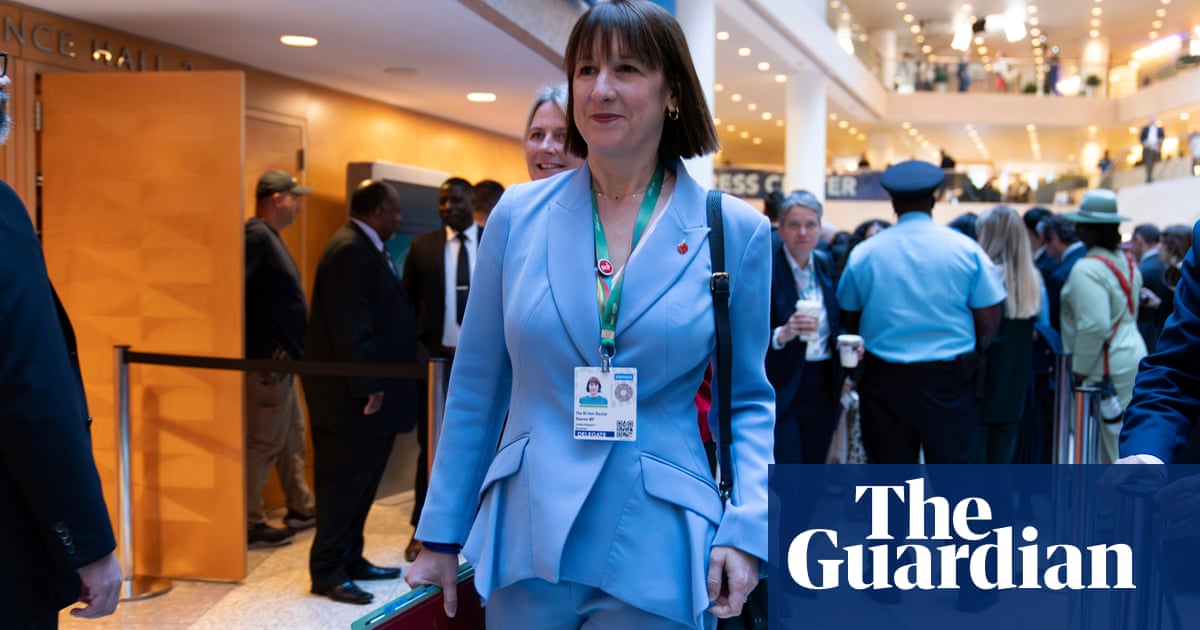Rachel Reeves’ Bold Move: Reversing Public Investment Cuts for a Brighter Future
In a significant announcement that could reshape the landscape of public investment in the UK, Chancellor Rachel Reeves has pledged to reverse substantial cuts in infrastructure spending. This commitment comes as part of her upcoming budget, where she plans to overhaul the rules governing government spending, potentially unlocking up to £50 billion for vital infrastructure projects. This strategic shift aims to bolster the UK’s economic standing and ensure that public investment does not lag behind other major economies.
A New Approach to Fiscal Policy
During her recent trip to the International Monetary Fund (IMF) annual meetings in Washington, Reeves confirmed her intention to revise the Treasury’s approach to calculating budget shortfalls. This change is designed to free up funds for public infrastructure, a sector that has suffered from years of underinvestment. By adjusting the metrics used to assess government debt, Reeves aims to create a more flexible fiscal environment that prioritizes long-term investment over short-term austerity.
Reeves emphasized the urgency of this initiative, stating, “I am not prepared to see public investment fall even further behind the levels seen in other major economies.” This statement underscores her commitment to revitalizing the UK’s infrastructure, which is crucial for economic growth and competitiveness on the global stage.
The Financial Implications
Experts have indicated that the proposed changes could release more than £50 billion over the next five years compared to the previous Conservative administration’s plans. This substantial sum could be directed towards critical infrastructure projects, including transportation, housing, and renewable energy initiatives, which are essential for fostering economic resilience and sustainability.
However, the announcement has not been without its challenges. Financial markets reacted cautiously, with concerns that Labour’s spending plans might echo the infamous mini-budget introduced by former Prime Minister Liz Truss in 2022, which led to market turmoil. In response, Reeves has assured stakeholders that she will maintain strict limits on Whitehall budgets and will not allocate all the additional investment funds in her first budget. This approach aims to instill confidence in the markets and ensure that public finances remain sustainable.
A Commitment to Responsible Spending
Reeves has made it clear that her government’s focus will be on responsible investment rather than short-term fiscal giveaways. “It’s really important for the sustainability of public finances that we give confidence to markets that we’re not borrowing to pay for the day-to-day functioning of government,” she stated. This commitment to fiscal responsibility is crucial in maintaining the trust of investors and ensuring that the UK’s economic recovery is built on solid foundations.
To further bolster this commitment, Reeves plans to collaborate with the National Audit Office and the Office for Budget Responsibility to validate all investments. This oversight will ensure that funds are allocated effectively and that the long-term benefits of these investments are realized for taxpayers and the economy as a whole.
Market Reactions and Future Outlook
In anticipation of Reeves’ announcement, the cost of government borrowing saw an uptick, with bond traders adjusting their expectations regarding UK debt levels. The yield on UK government bonds rose to approximately 4.2%, reflecting the market’s cautious stance. This increase in borrowing costs stands in contrast to a decline in borrowing rates for other comparable countries, such as the United States, highlighting the unique challenges facing the UK.
As the spread between UK gilts and German debt reached its highest level in over a year, it is evident that the financial markets are closely monitoring the government’s fiscal strategy. The coming weeks will be crucial as Reeves unveils her budget and outlines the specifics of her proposed changes to fiscal rules.
Conclusion
Rachel Reeves’ pledge to reverse cuts in public investment marks a pivotal moment for the UK’s economic strategy. By prioritizing infrastructure spending and adopting a more flexible approach to fiscal policy, the government aims to stimulate growth and enhance the country’s competitiveness. As the budget announcement approaches, all eyes will be on Reeves to see how her plans unfold and whether they can successfully navigate the delicate balance between investment and fiscal responsibility. The future of the UK’s infrastructure and economic health may very well depend on the decisions made in the coming weeks.
